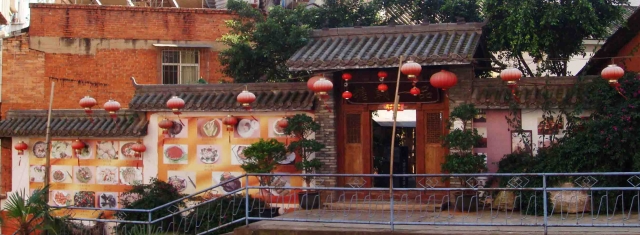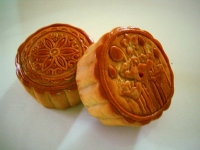Travel
Mid-Autumn Festival in Asia
Moon Festival Phuket, Thailand

Lantern Festival (Source: Ilse M. Gibson)
USPA NEWS -
This festival is a family reunion celebration comparable with Thanks Giving in the US. On the evening of the festival family members celebrate with neighbors and friends feasting and after the feast moon cakes, fruits and wine are offered as a sacrifice to the Moon Goddess, usually in an open space.
The Moon Festival also called Mid-Autumn Festival or Lantern Festival was celebrated again in China, Vietnam, Taiwan, Hong Kong and Singapore and in places like Phuket, Thailand. In China the festival is the second biggest festival after Chinese New Year also called Spring Festival. It is celebrated among Chinese communities to mark the end of the harvest season. The Mid-Autumn Festival got its name Moon Festival because it is always celebrated at a time of the year when the moon is the brightest and the roundest, falling on the 15th day of the 8th month according to the Chinese lunar calendar which was this year on September 8.
From September 6th ““ 8th 2014 the festival celebrations in Phuket took place in Queen Sirikit Park in Phuket Town. Many Chinese tourists like to come to Phuket for a holiday during the festival to join in the extensive celebrations.
The Moon Festival is an inherited custom of moon sacrificial ceremonies and is celebrated in Phuket because of the many Chinese Hakka descendants who carried the traditions on for hundreds of years. Chinese ancestors prayed to the moon for fertility and offered thanks for the harvest. It is one of the most important festivals in the Chinese lunar calendar.
Part of the celebrations is praying in decorated temples, chanting ceremonies, a praying-to-the-moon ceremony, food demonstrations and the giving of food and eating. Especially the traditional moon cake is given away to monks, friends, neighbors but not only in Phuket, also all over China, Taiwan, Vietnam, Singapore and Hong Kong.
Liability for this article lies with the author, who also holds the copyright. Editorial content from USPA may be quoted on other websites as long as the quote comprises no more than 5% of the entire text, is marked as such and the source is named (via hyperlink).






